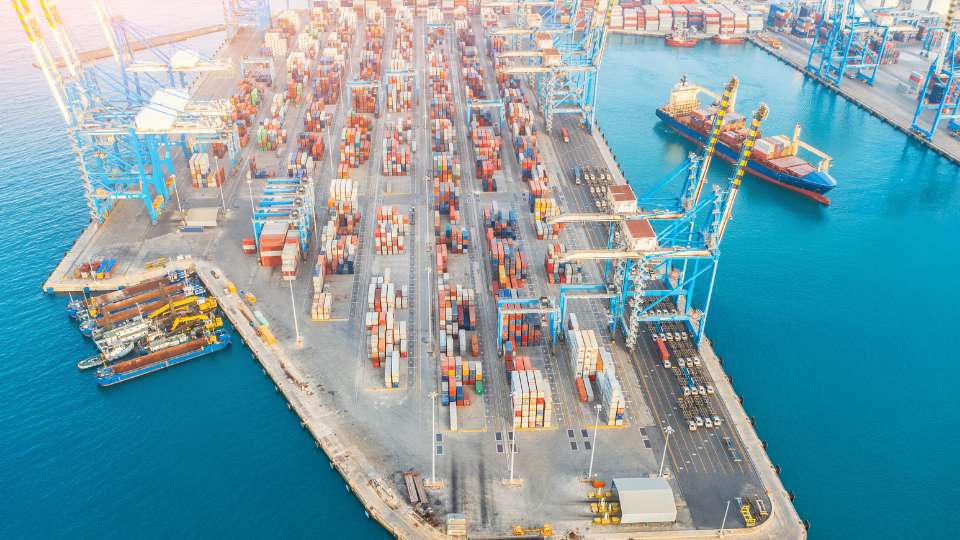Understanding Freight Derivatives: A Comprehensive Overview
Freight derivatives are financial instruments used to manage and hedge against the volatility in freight rates. They are contracts whose values are derived from the cost of shipping goods, and they offer a way to mitigate the risks associated with fluctuating freight prices. These derivatives are essential in the global shipping industry, where the cost of transporting goods can be highly unpredictable due to various factors such as fuel prices, geopolitical events, and demand-supply dynamics.
By using freight derivatives, businesses can stabilize their transportation costs, making it easier to forecast and manage budgets. This financial tool is increasingly gaining traction as companies seek more sophisticated methods to protect themselves against market uncertainties.
The Mechanics of Freight Derivatives: How They Work
Freight derivatives, like futures and options, help manage risk and speculate on price changes. They can be traded over-the-counter (OTC) or on exchanges, offering flexibility. The most common type is Forward Freight Agreements (FFAs), which set future freight rates for specific routes, allowing companies to hedge against cost fluctuations.
Trading freight derivatives secures a fixed price for future services, helping manage financial exposure. If rates rise above the contract price, companies save money; if rates fall, they may incur a loss but benefit from stable costs for better budgeting and planning. This stability aids efficient resource allocation and informed logistics decisions, enhancing financial performance.
Who Should Consider Trading in Freight Derivatives?
Freight derivatives are particularly advantageous for businesses that are heavily reliant on the transportation of goods across various regions and markets. This includes shipping companies, which are directly involved in the movement of cargo across oceans and seas, and commodity traders, who deal with the buying and selling of raw materials that require efficient and cost-effective shipping solutions. Large manufacturers, who often need to transport vast quantities of products to different parts of the world, also find freight derivatives invaluable. By engaging in the trading of freight derivatives, these businesses can effectively shield themselves from unpredictable fluctuations in freight rates, which can have a substantial impact on their profit margins and overall financial health.
Moreover, financial institutions and investment firms that are looking to diversify their investment portfolios and gain exposure to the dynamic shipping industry can also reap significant benefits from trading freight derivatives. These financial entities can use freight derivatives as a tool to hedge against market volatility and to capitalize on potential opportunities within the shipping sector. Additionally, logistics companies and freight forwarders, who play a crucial role in coordinating and managing the transportation of goods, may utilize these financial instruments to offer more consistent and stable pricing to their clients. This ability to provide predictable rates not only enhances their service offerings but also strengthens their competitive edge in a market where price stability is highly valued by customers seeking reliable shipping solutions.

Types of Freight Derivatives: Navigating Your Options
There are several types of freight derivatives available in the market, each catering to different needs and strategies, allowing businesses to tailor their risk management approaches to their specific operational and financial goals. Some of the most common types include:
- Forward Freight Agreements (FFAs): These are the most widely traded freight derivatives, serving as a cornerstone for many companies looking to stabilize their shipping costs. FFAs allow traders to lock in freight rates for future dates, providing a hedge against rate volatility. By securing a fixed rate, businesses can protect themselves from unexpected price hikes, ensuring more predictable budgeting and financial planning. This is particularly beneficial for companies operating in industries where transportation costs constitute a significant portion of their expenses, as it enables them to maintain competitive pricing and safeguard profit margins.
- Freight Options: These derivatives give the holder the right, but not the obligation, to buy or sell a freight contract at a predetermined price, offering a level of flexibility that is highly valued in dynamic markets. They are useful for companies that want more flexibility in their hedging strategies, allowing them to adapt to changing market conditions without being locked into a fixed commitment. This flexibility can be crucial for businesses that need to respond quickly to shifts in demand or supply chain disruptions, providing them with the ability to capitalize on favorable market movements while limiting potential losses.
- Freight Futures: These are standardized contracts traded on exchanges that require the delivery of a specific amount of freight at a future date. They offer high liquidity and transparency, making them an attractive option for traders seeking to engage in the freight market with confidence. The standardized nature of these contracts ensures that they are easily tradable, providing participants with the ability to enter and exit positions with relative ease. This liquidity is essential for companies that need to manage large volumes of freight, as it allows them to efficiently adjust their positions in response to market developments, thereby optimizing their logistics and supply chain operations.
Hedging Risks and Developing Strategies in the Freight Derivatives Market
Hedging with freight derivatives involves strategically taking a position in the derivatives market to counterbalance potential financial losses that may occur in the physical freight market due to unforeseen fluctuations. This approach is particularly beneficial for companies that are vulnerable to changes in freight rates, as it allows them to secure more predictable financial outcomes. For instance, a shipping company that anticipates an increase in fuel prices can proactively purchase Forward Freight Agreements (FFAs) to lock in the current rates. By doing so, they effectively shield themselves from future cost escalations, ensuring that their transportation expenses remain stable despite market volatility. This foresight not only helps in maintaining budgetary discipline but also enhances the company’s ability to plan long-term financial strategies with greater confidence.
Some common strategies employed in hedging with freight derivatives include using FFAs to establish fixed transportation costs, which provides a safeguard against unexpected rate hikes. Additionally, companies may employ freight options to allow for more flexible risk management, enabling them to adapt to changing market conditions without being bound to a fixed commitment. This flexibility is crucial for businesses that need to swiftly respond to shifts in demand or supply chain disruptions. Furthermore, combining different types of derivatives can lead to the creation of customized hedging solutions tailored to specific business needs and risk profiles. This multifaceted approach allows companies to optimize their risk management strategies, ensuring that they are well-prepared to handle various market scenarios. It is essential for traders to have a comprehensive understanding of market trends, historical data, and economic indicators when developing their strategies, as these elements provide critical insights that can inform decision-making and enhance the effectiveness of their hedging activities.

Where Are Freight Derivatives Traded?
Freight derivatives can be traded both over-the-counter (OTC) and on exchanges, each offering distinct advantages and considerations for market participants. OTC trading is typically conducted through brokers, providing a platform for more customized contracts that can be tailored to meet the specific needs and preferences of the parties involved. This flexibility allows businesses to negotiate terms that align closely with their unique operational requirements and risk management strategies. However, the bespoke nature of OTC contracts may come with higher counterparty risk, as these trades are not standardized and rely heavily on the creditworthiness and reliability of the involved parties. This risk necessitates thorough due diligence and the establishment of strong relationships between trading partners to ensure the successful execution and settlement of these contracts.
On the other hand, exchanges like the Baltic Exchange and the CME Group offer standardized freight derivative contracts, which bring a different set of benefits to the table. These exchanges provide a structured and regulated environment where contracts are uniform, enhancing transparency and liquidity in the market. The standardized nature of these contracts means that they are easily tradable, allowing participants to enter and exit positions with greater ease and confidence. This liquidity is particularly advantageous for traders seeking to engage in the freight market with the assurance that they can quickly adjust their positions in response to market developments. Additionally, these exchanges offer clearing services, which play a crucial role in reducing the counterparty risk associated with OTC trades. Clearing services act as intermediaries, ensuring that both parties fulfill their contractual obligations, thereby mitigating the risk of default and enhancing the overall security and stability of the trading process. This added layer of protection makes exchange-traded derivatives an attractive option for those looking to manage their freight-related financial exposure with greater certainty and peace of mind.
Conclusion
Navigating the turbulent waters of global shipping requires precision, foresight, and the right tools to manage risk. Freight futures have emerged as a powerful instrument for shipping companies, commodity traders, and investors to hedge against volatile freight rates and capitalize on market opportunities. SGX (Singapore Exchange), provides a robust and reliable platform for trading freight futures, offering unparalleled access to the global freight market. Whether you’re looking to stabilize shipping costs or diversify your portfolio, SGX delivers the liquidity, transparency, and expertise you need to trade with confidence. Start charting your course to smarter trading today.
Start Trading with Orient Futures Singapore
Being an Overseas Intermediary of Shanghai International Energy Exchange (INE), Dalian Commodity Exchange (DCE), and Zhengzhou Commodity Exchange (ZCE), when foreign clients participate in internationalised futures contracts in these Chinese markets with us, they have direct access to trading, clearing, and settlement. Our parent company, Shanghai Orient Futures, is the largest broker in terms of aggregated volume across the five regulated exchanges in China.
Orient Futures Singapore also currently holds memberships at the Singapore Exchange (SGX), Asia Pacific Exchange (APEX), and ICE Futures Singapore (ICE SG). Starting August 2023, corporate clients can also gain access to the B3 Exchange through us, opening additional trading avenues.
Expect streamlined processes and an easy-to-use interface designed for minimal latency, accompanied by our team’s round-the-clock availability on trading days to provide assistance for all your trading needs.




